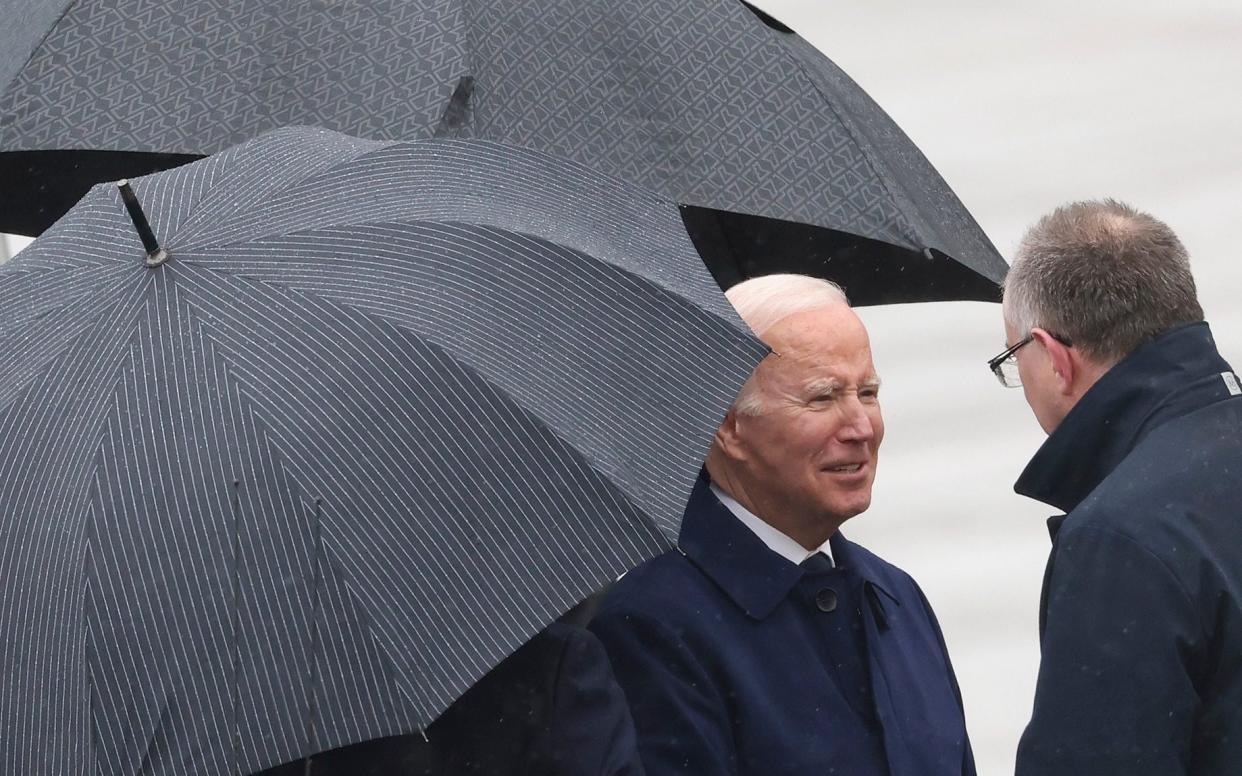Keeping the peace in Northern Ireland

- Oops!Something went wrong.Please try again later.
Joe Biden’s visit to Northern Ireland was supposed to coincide with the restoration of the power-sharing executive, suspended since the DUP walkout last year in protest at post-Brexit trading arrangements. Had Stormont been revived, the President would have addressed the assembly but the DUP is unwilling to end their boycott and has rejected the new deal that Rishi Sunak negotiated with Brussels.
In his speech in Belfast, Mr Biden urged the parties to come back together, though he was careful not to be prescriptive given the suspicions he provokes among Unionists. “It is a judgment for you to make, not me,” he said. Nonetheless, the Americans have invested a great deal in bringing about the peace that has held, by and large, for the past 25 years. Mr Biden said that commitment remained and the US was prepared to continue helping the province’s economy. American companies have invested $2 billion since 1998.
Mr Biden said peace and economic opportunity go together and was right to observe that stable political institutions are also an important condition for creating confidence and attracting investment. He cited as an example the state of Delaware, which has more corporations registered than the rest of the US combined. He did not mention, however, the low taxes and flexible laws that have made this possible. We do not even need to look that far: Ireland’s corporation tax rate is half what it is in the North. The Prime Minister should take note.
In the event, President Biden’s Northern Irish sojourn was brief. He headed for the Irish republic to tour areas from which his family hailed before leaving for the New World in the mid-19th century to escape famine.
The claim of 45 million Americans to an Irish heritage largely explains why the world’s superpower has gone to such lengths to influence the politics of Northern Ireland, a province of fewer than two million people. Their antecedents were not even all Catholics. Ulster-Scots such as George Taylor and James Smith were prominent among the founding fathers of the American republic. Almost two dozen presidents have claimed some connection with the Emerald Isle.
As a result, its geopolitical pull has always been far more powerful than its size would suggest and, 25 years after the Good Friday Agreement, it can still find itself the centre of international attention, albeit often for the wrong reasons.

